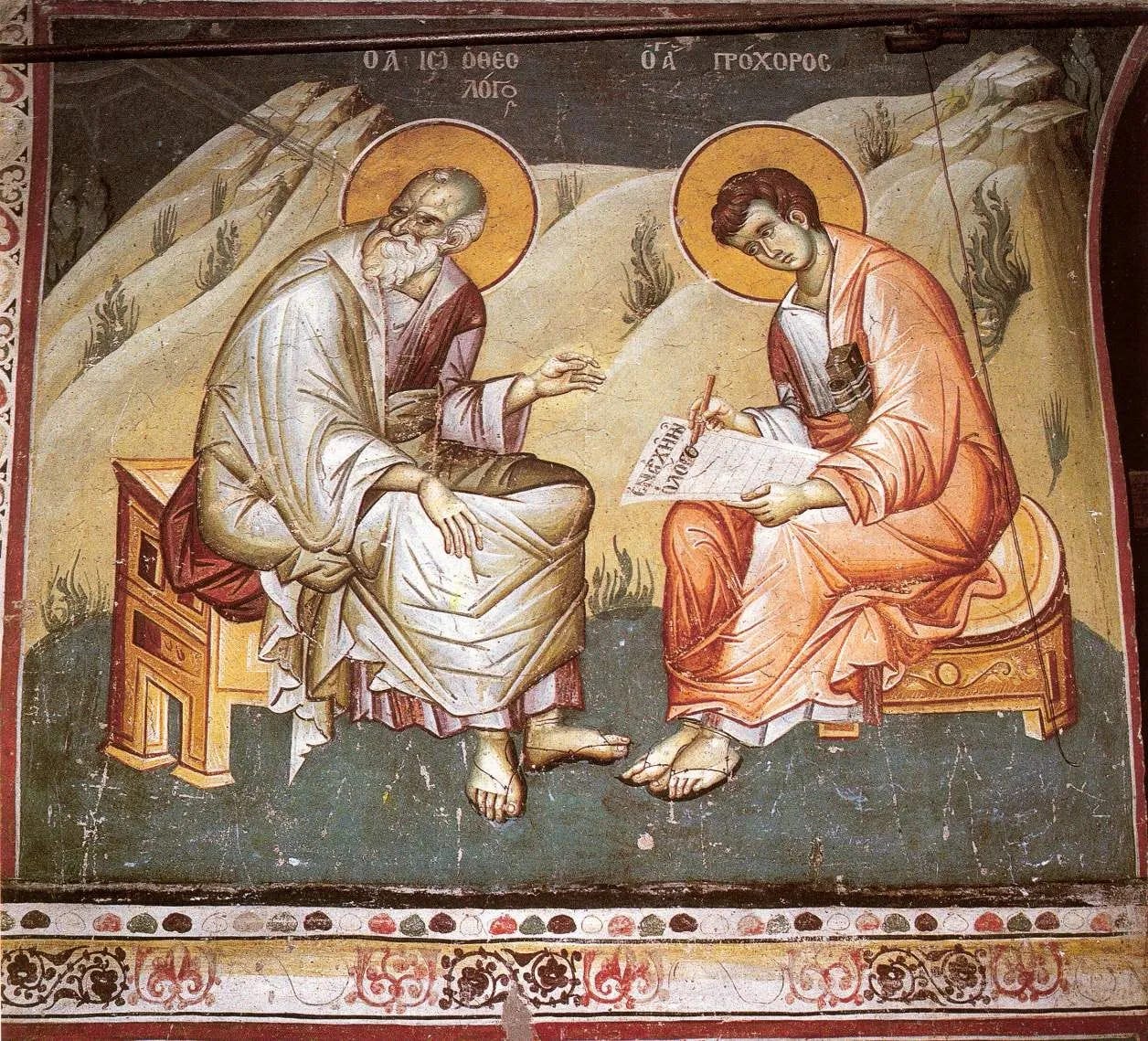Unruly History in the News #81
Art history, Christmas history, and remarkable finds under Notre Dame
Hello everyone,
Hope everyone is having a lovely week! It’s actually “winter” here in LA, finally, with temps dropping to a freezing 50 degrees at night. (Please hear the sarcasm, I’m from a place with real winter, I promise!)
Next week I will be traveling, so there won’t be a history news update. But I’ll be back for the last one of 2024 on December 29th.
Without further ado, history acting unruly in the news…
In Christmas history…
Did you know that The Nutcracker was once considered a flop? So how did it save American ballet?
Which poem shaped all the trappings of American Christmas?
If you’d like to gift a copy of the poem, this is a particularly lovely version.
How Walter Benjamin’s iconic anti-fascist essay “Theses on the Philosopy of History” escaped Nazi Germany, even as he did not.
In art history…
The real name of a notable Byzantine artist has finally been found through handwriting analysis. Usually known as Manuel Panselinos, art historians began to suspect Panselinos was a pseudonym. Through investigation, they’ve connected him with the real person Ioannis Astrapas of Thessaloniki.

An artwork by Manuel Panselinos (Ioannis Astrapas). Source: Wikimedia Commons. The first Polish museum of queer history just opened in Warsaw. Considering that the status of queer rights in Poland is some of the worst in the EU, this is a big deal!
In Italy, paintings and sculptures confiscated from the Mafia by the Italian police are being exhibited in Milan.
And in obligatory Parthenon Marbles update: The UK government isn’t ruling out a loan to Greece (where the sculptures were taken from in the first place) but an agreement is still a long way off.
lolllll this annotated list of things Raymond Chandler hated just sold for $2,000 at auction. The fact that he hates hard-boiled eggs when his work is often called “hard-boiled detective fiction” is a delicious kind of irony.
This mysterious stone tablet found in Eastern Europe is written in an unknown language.

Testing has confirmed authenticity, but archaeologists have no idea what the tablet means. Image Credit: R. Shengelia et al., Journal of Ancient History and Archaeology (2024) Les Bains Guerbois, Paris’ answer to Studio 54, has a long history as bathhouse, nightclub, hotel, and now cologne.
Colorado is home to the longest-running gay rodeo in the world.
Did you know snowboarding used to be called snurfing? (I can only imagine it was a portmanteau of snow + surfing, right?)
Speaking of extreme sports: A history (and future) of American drag racing.
A silver amulet found north of the Alps pushes back the introduction of Christianity to the region back by 50-100 years.
Notre-Dame in Paris burning was a cultural disaster, but the fire did reveal a 13th-century rood screen thought lost for over two hundred years, as well as several luxurious graves.

Two incredible pieces of sculpture thought lost since the 18th century were found under the floor. Source: Hamid Azmoun, Inrap To save salmon, this coalition of Native groups fought the US government—and won.
The graves of 28 enslaved people were just found on President Andrew Jackson’s Nashville estate.
Theodosia Burr’s resting place is unknown. How did this happen in the first place, and how is the quest to find her grave going?
President Biden has announced a new monument acknowledging the thousands of Indigenous children who were taken and oppressed in residential schools.
Who was The Order, and what was their impact on White Nationalism today?
Infectious disease used to kill children at alarming rates—in the 19th century, nearly 50% of children didn’t live past 5! Literature can help us tap into this relentless grief we’re fortunate to not experience.
A rare gold Brutus coin, minted after Julius Caesar’s assassination, is up for auction.

The rare coin was minted in 42 or 43 BCE. Image credit: Numismatica Genevensis SA These 7,000 year old bowstrings found in a cave in Spain reveal remarkable Neolithic craftsmanship.
An ancient Celtic writing stylus made of bone was just found in Germany.
How did 1980s “Miami cocaine culture” infiltrate the national imagination?
An ancient Roman chalice filled with pig fat was found in the grave of a teenaged girl born 300 years later. That is was in perfect condition when it was buried with her suggests it was a family heirloom.
This 35,000-year-old tortoise shell carving may be the oldest evidence of religious or spiritual ritual in the Holy Land.


